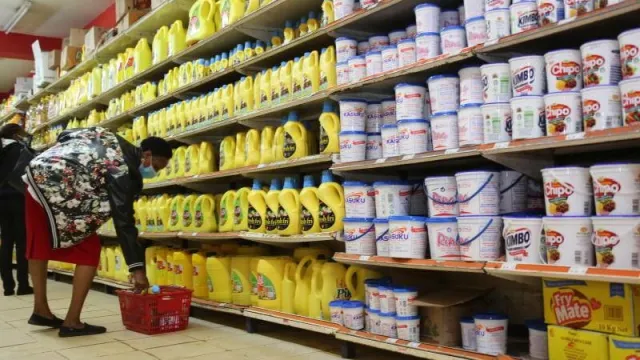Kenya price pressures to remain stubbornly high

Kenya price pressures to remain stubbornly high
Save for fuel products, the taxman has turned a deaf hear to intense lobbying from consumers and manufacturers, slapping a 6.3 percent excise adjustment on dozens of goods and piling more pressure on buyers already stretched thin by high prices.
Starting October, the prices of fruit juices, bottled water, alcoholic products, cigarettes and other excisable products are set to go up, eroding the purchasing power of consumers already burdened by the high cost of living due to high food and fuel prices.
"The Commissioner-General adjusts for inflation the specific rates of excise duty set out in the schedule in accordance with the formula specified in part 1 of the first schedule to the Excise Duty Act 2015 with effect from 1st October 2022, and takes into account the average rate of inflation for the 2021/2022 financial year of 6.3 percent," the Kenya Revenue Authority said in a special Gazette issue.
Kenya Revenue Authority (KRA) Commissioner-General Githii Mburu on Monday said that the inflation adjustment will affect excisable products other than petroleum products.
Already, pump prices are at historic highs following a steady rise in global energy prices.
Read also: Excise tax adjustments are a bane to Kenya’s economy
In the new price regime for various products, the excise duty on a litre of fruit juices has gone up to Kes14.14 from the current Kes13.30.
Similarly, it would cost you more to quench your thirst as makers of bottled water and other non-alcoholic beverages will now pay the taxman Kes6.41 per litre up from Kes6.03 per litre currently.
One of the heaviest blows, however, appears to have been reserved for consumers of alcoholic drinks as manufacturers of beer, cider, perry, mead, and opaque beer will now pay KRA Kes142.44 per litre up from Kes134 currently following the revision of excise duty rate.
The excise duty for a litre of wine has also been revised to Kes243.43 per litre up from Kes229 per litre previously, an increase of Kes14.43.
Further, consumers of spirits will pay more as manufacturers are set to pass on the burden of Kes21.12 occasioned by the new excise rate of Kes356.42 per litre to consumers. Previously, spirits used to attract Kes335.3 per litre excise duty.
In recent months, the alcoholic drinks industry has been at the forefront of lobbying the taxman not to implement the annual inflation adjustment noting that previous undertakings have been counterproductive to the sector's growth and KRA revenue projections.
The industry said that with the higher excise duty rate, roughly 35,000 jobs are to be lost as a result of tax rate hikes including 300 direct jobs, over 800 distributable occupations, 30,600 openings at on-trade locations such as bars and other entertainment joints and 3,600 income-earning opportunities within the off-trade system.
The loss of jobs translates to further tax leakages for the KRA as the taxman losses out on collections from other categories such as Pay As You Earn (PAYE) and corporation taxes in the event investors are forced to close their establishments, the manufacturers said.
Cigarettes with filters will start attracting Kes4,067.03 per mile up from the current Kes3,825.99 per mile in the new excise regime even as cigars, cheroots, cigarillos get slapped with new tax charges at Kes16,260.29 per kilo up from Kes15,296.6 a kilo.
Kenya's inflation grew uncomfortably rapidly in September closing at a record high of 9.2 percent, up from 8.5 percent reported in August. The Kenya National Bureau of Statistics (KNBS) report attributed the increase to the rise in food and fuel prices at 15.5 percent and 11.7 percent, respectively.
For policymakers at the Central Bank of Kenya, who last week raised the benchmark lending rate to 8.5 percent to slam the brake on inflation, September inflation numbers were a fresh sign that continued aggressive action may be needed to wrestle the rise in the cost of living even lower.



